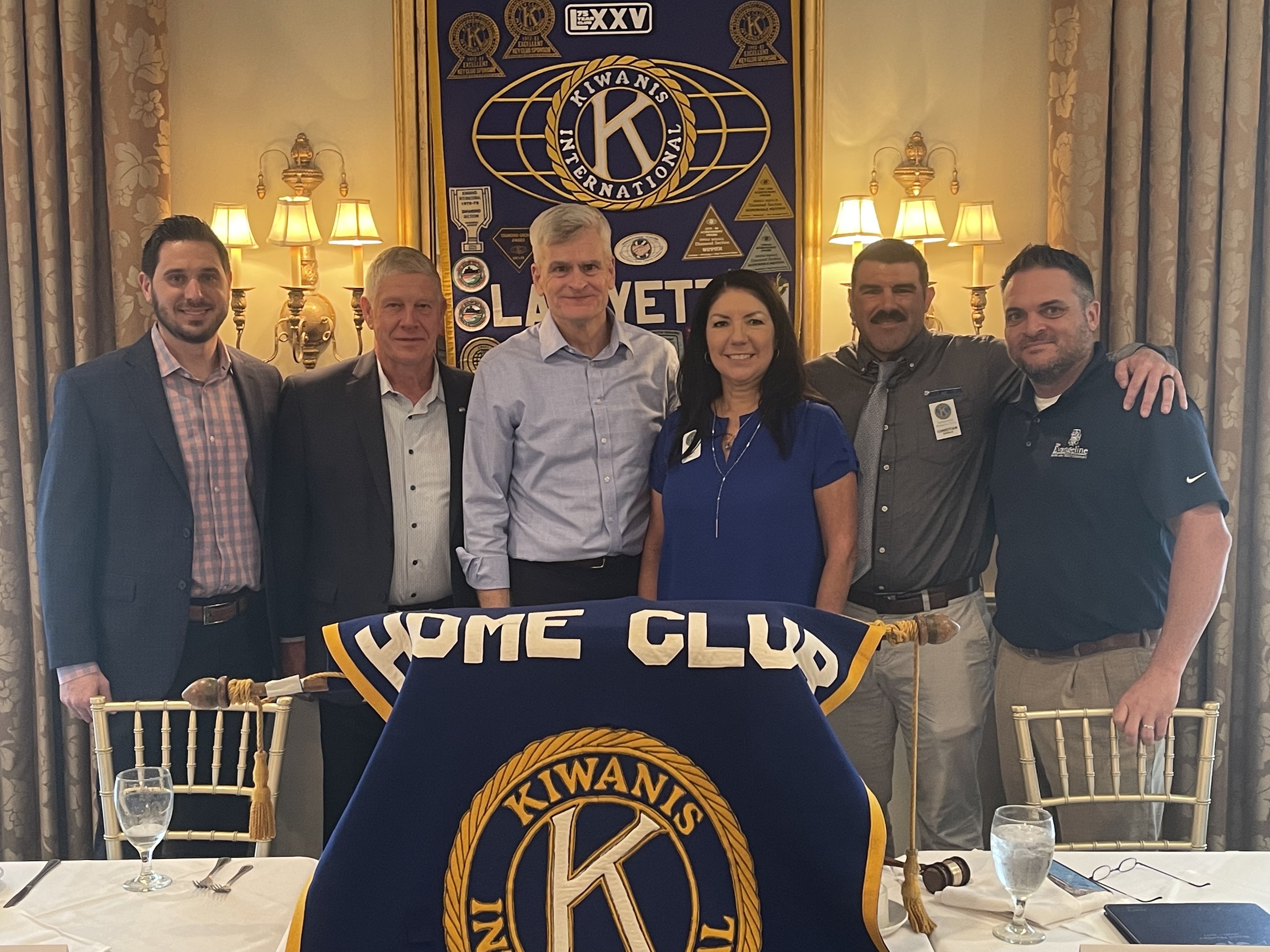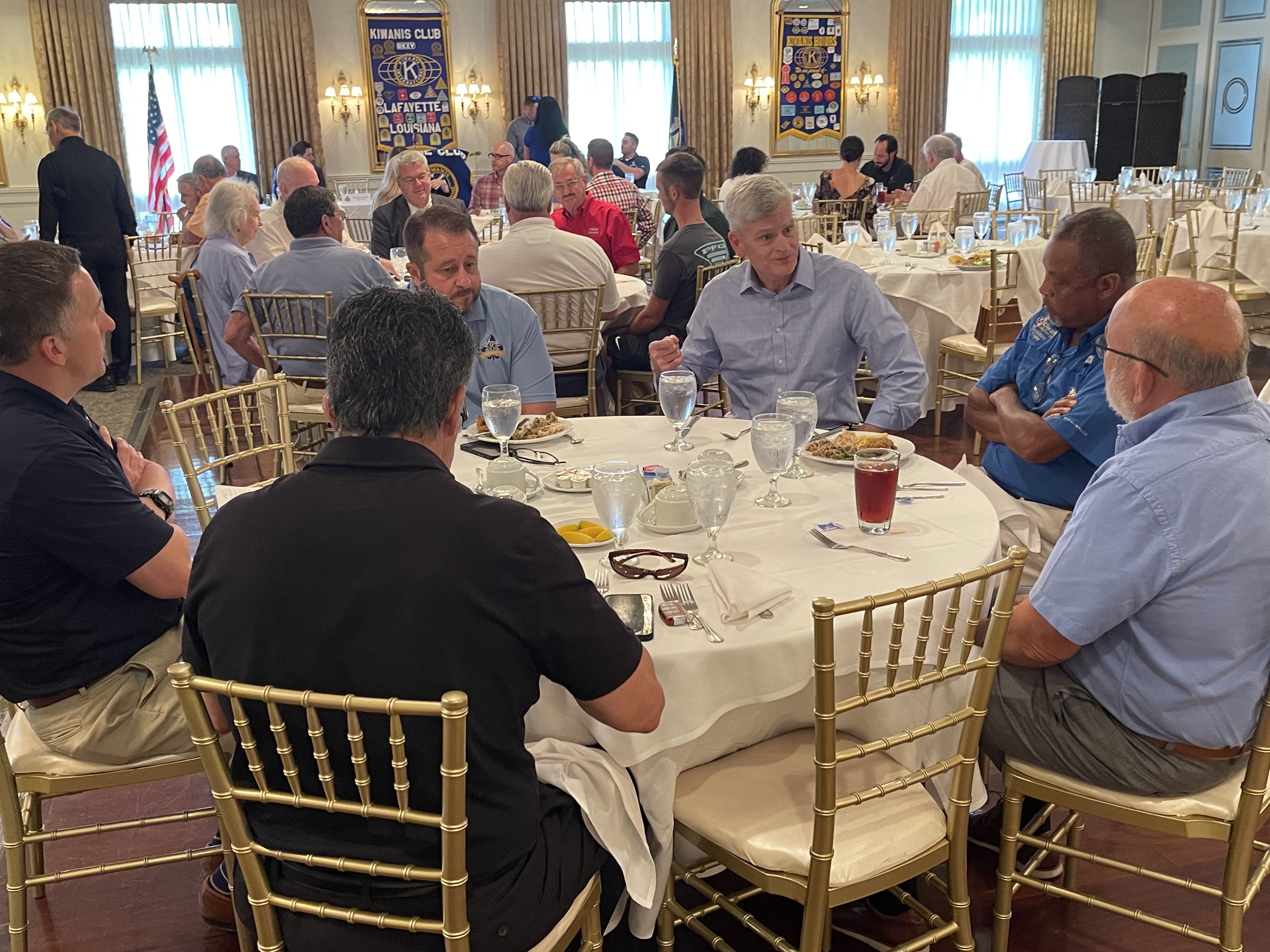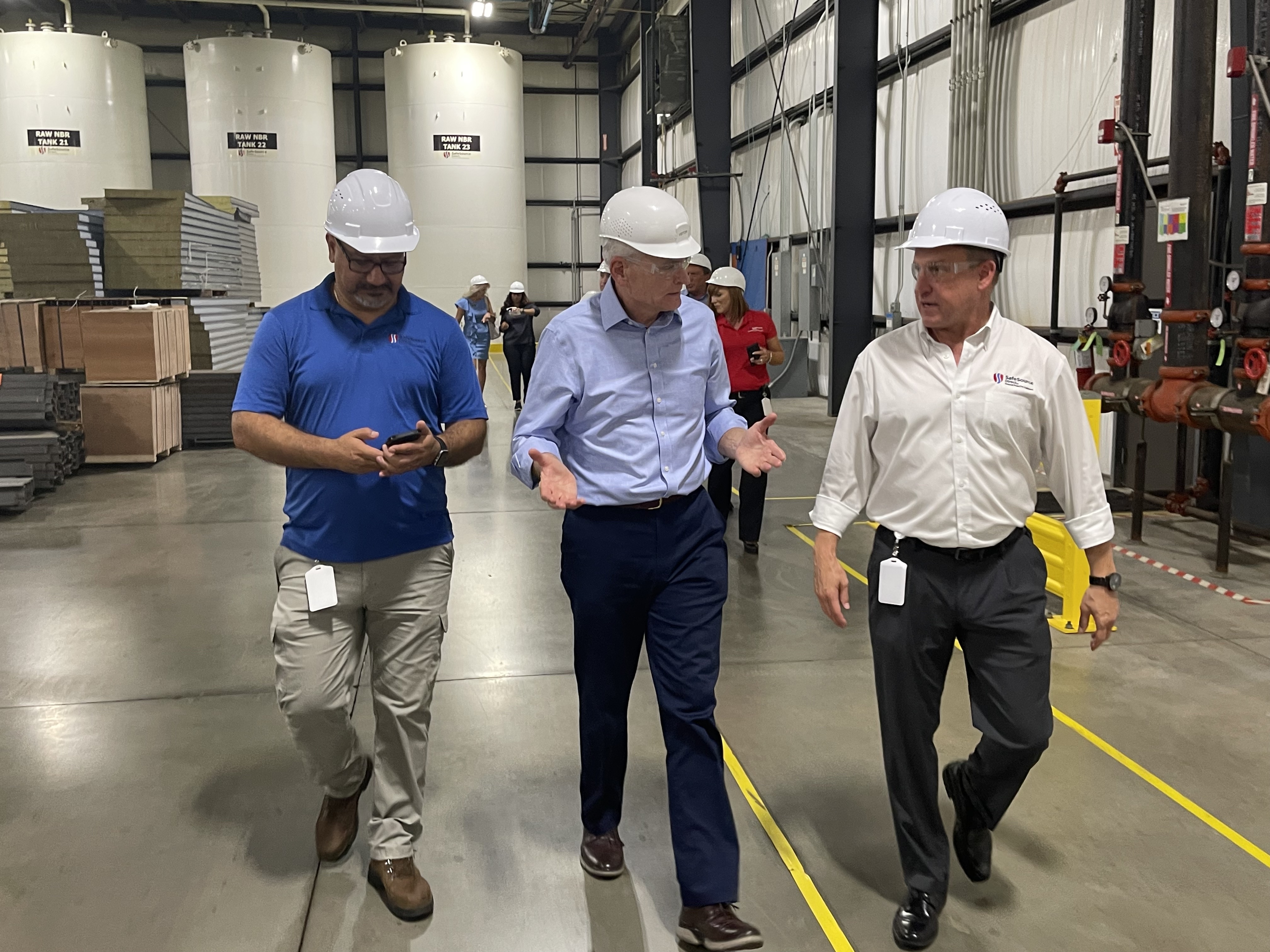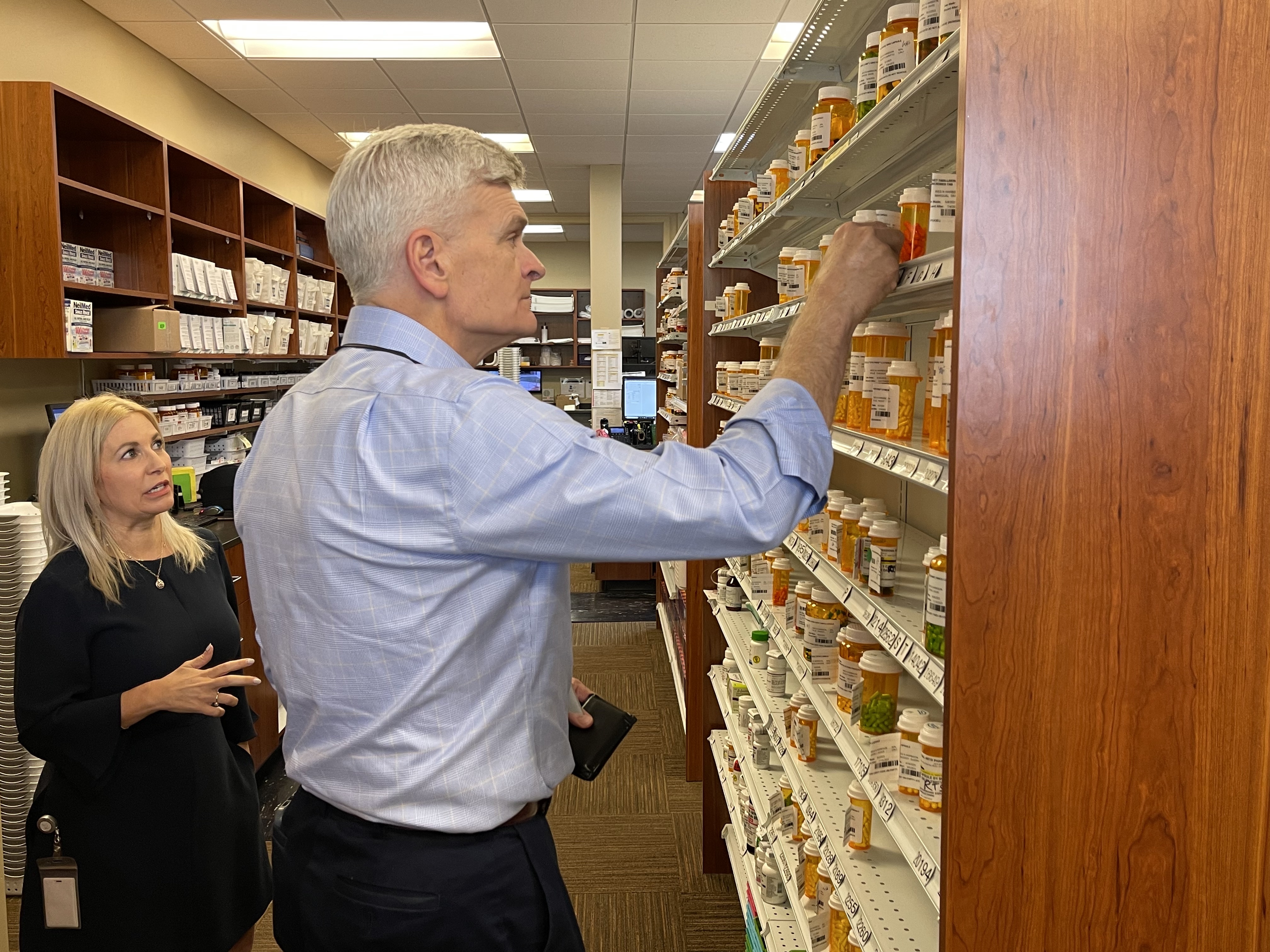LAFAYETTE – Today, U.S. Senator Bill Cassidy, M.D. (R-LA) spoke to members of the Kiwanis Club of Lafayette on his work in Washington to help people in Acadiana. He discussed the benefits of his Infrastructure Investment and Jobs Act (IIJA), especially those for the energy sector in Louisiana.

“Louisiana’s has a bright future being shaped by investment from the bipartisan infrastructure bill,” said Dr. Cassidy. “Nowhere is this more true than in Lafayette and Acadiana. People here will be able to take their expertise and leverage it with resources from the bill to benefit our state, our region and our country.”
Cassidy also discussed how the IIJA is expanding high-speed internet throughout Louisiana. Just recently, the National Telecommunications and Information Administration awarded nearly $1.4 billion to the state to accomplish that goal. Additionally, grants from the IIJA to support workforce development were recently allocated, including $420,000 to support South Louisiana Community College’s welding, maritime structural fitter, and machine tool program cohort.

While there, Cassidy was introduced by Mary Nain, President of the Kiwanis Club of Lafayette.
“The Kiwanis Club of Lafayette appreciates Senator Cassidy visiting with us today to discuss several important issues to his constituents in Acadiana, including his support for our energy industry and his effort to connect every part of our state with high-speed Internet. We were excited to learn that Louisiana will receive $1.3 billion to extend broadband throughout Louisiana,” said Ms. Nain.
Earlier, Cassidy visited SafeSource Direct’s glove plant, to learn how they are producing personal protective equipment in America. SafeSource Direct produces gloves, masks, gowns, caps and shoe covers that can be used by doctors, nurses and other health care professionals. Cassidy joined Ochsner Health and Trax Development to announce the creation of SafeSource Direct in May of 2021. Now, they employ 806 people.

Additionally, Cassidy visited the Professional Arts Specialty Pharmacy, to learn how they are creating medications through pharmacy compounding to meet the individual needs of patients. They gave Cassidy a tour of their compounding lab.
“SafeSource is making gloves, face masks and medical gowns in Acadiana, so we can be more secure in our medical supplies,” said Dr. Cassidy. “And Pharmacy Arts is customizing medicine specific to the individual needs of patients. Both are creating jobs and doing amazing things for our state.”

At SafeSource Direct, Cassidy was greeted by company Vice President Daniel Pepper. And at the Professional Arts Specialty Pharmacy, he was welcomed by registered pharmacist Eric Vidrine, who serves as their President and CEO.
“It was an honor to host Senator Cassidy at our manufacturing facility today and show him how we’re strengthening America’s PPE supply resilience while also creating hundreds of new jobs right here in Louisiana,” said Mr. Pepper. “We recalled the challenges our nation faced during the COVID-19 pandemic and discussed our leading role in being prepared for the next one. We thank Senator Cassidy, not only for being one of our strongest supporters since day one, but also for everything he’s done to bring manufacturing back to the U.S. Ours is a story of what’s possible through American ingenuity, made possible through partners like Senator Cassidy, that can be replicated across industries and in communities throughout the nation.”
“We appreciate Senator Cassidy visiting us today at Professional Arts Specialty Pharmacy,” said Mr. Vidrine. “Since his is a physician, we especially enjoyed showing him our compounding lab, so he could see the quality assurance and care that goes into making customized medications. Some patients’ needs are not met by a “one-size-fits-all” approach to prescribed medication therapies. Pharmacy compounding provides a way for prescribers and compounding pharmacists to customize an individualized prescription for the specific needs of their patients.”
Mr. Vidrine added, “We discussed preserving continued access to compounded medications, which can be life changing or life saving for some people. While compounding pharmacies are regulated by state boards of pharmacy, federal agencies such as the FDA enforce guidance that can restrict access to these individualized therapies. We also discussed opening up more access to compounded medications by reviewing cost-containment strategies that would allow CMS to cover (pay for) compounds made from raw ingredients for Medicare patients. Not everyone will need a compounded medication in their lifetime. It is estimated that only 3% of all prescriptions are compounded. But for the patients that are the 3%, it can be the crucial thing that made the difference in their health outcomes.”
###